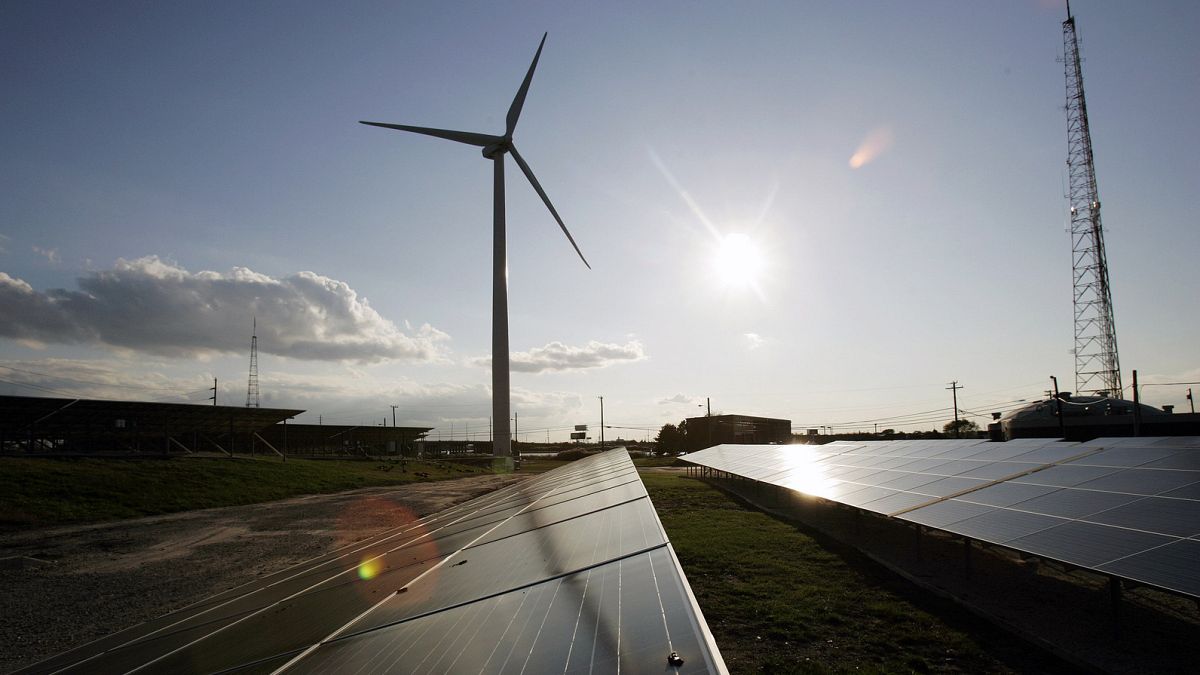The European Union has not yet fallen behind in the global race for net-zero technologies, despite fears of a loss of competitiveness.
While China is a clear leader in deploying technologies such as renewable energy and electric vehicles, the EU is not far behind, according to a new study released by Strategic Perspectives, a think tank focused on climate action.
Last year, the bloc had the largest share of wind and solar electricity generation among the world's leading economies.
The EU also has the highest use of electric cars per capita compared to other large economies and is edging ahead of its competitors in investments in heat pumps, a cleaner alternative to gas, coal and fuel boilers.
The report uses manufacturing and investment data to provide a first-of-its-kind comparison of the deployment of green technologies in five major economies: China, the European Union, the United States, Japan and India.
The authors argue that by investing in green technologies, countries can sharpen their competitive edge and ensure social and economic benefits for their populations.
The study praises the EU for having initiated the Green Deal, an ambitious set of policies to achieve climate neutrality by 2050, "at the right time" and helping strengthen the bloc's position vis-à-vis China, a mighty producer of solar panels and electric vehicles.
The EU, however, needs to "scale up domestic production and financial support for these technologies in the next few years," or otherwise risk falling behind, it warns.
The data also confirms that the Inflation Reduction Act (IRA), the $369-billion programme of tax credits and rebates introduced by US President Joe Biden to incentivise the domestic manufacturing of green tech, can boost America's economic performance.
The American-made provision in the IRA has stoked fears that EU companies will move to the other side of the Atlantic Ocean to benefit from the generous subsidies, dealing a fatal blow to the bloc's competitiveness and global leadership in climate action.
The panic is such that the European Commission was forced to come up with a new industrial strategy in record time to drastically increase the domestic production of net-zero technology and reduce administrative burden. The strategy, which is still under negotiations, complements a legal framework that makes it easier for member states to pump subsidies into the green economy.
Amidst the frenzy, the report by Strategic Perspectives offers a glimmer of hope: the Green Deal "could turn into the best strategic response to the multiple crises Europe is facing, improving its energy security, restoring its competitiveness and protecting households from high energy bills," it says.
"It's really up to the next Commission" to take the Green Deal to the next level, Linda Kalcher, director at Strategic Perspectives, told Euronews.
"It's really key that they're scaling up, especially as we've seen how the Inflation Reduction Act has brought the US again to the forefront," she went on. "There's a real threat the EU lacks behind the US."
